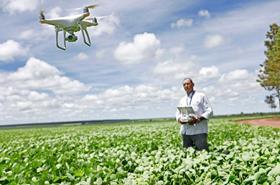
Bayer welcomed farmers, academics, leading global industry experts, journalists and other stakeholders to its 2019 Future of Farming Dialogue, to engage in a collaborative discussion on the future of agriculture.
Under the theme 'Tomorrow belongs to all of us' the event gathers speakers and participants from around 40 countries for two days of panel discussions, talks and interviews on issues and opportunitites facing the industry.
Topics discussed include the need to find a balance between production of food and preservation of our planet; consumer demands to have a healthy diet with no negative impact on the environment; and the importance of crop protection tools for sustainable agriculture.
“Agriculture needs to feed a growing world without starving the planet,' said Liam Condon, member of the Bayer board of management and president of the Crop Science Division. “Breakthrough innovations are needed so that farmers can grow enough food for a growing world population while preserving natural resources.
“As an agriculture leader, we have the opportunity and responsibility to address the global challenges of climate change, biodiversity loss and food security to help create a better tomorrow for our planet,” he continued.
During the event, Condon shared that Bayer is introducing three commitments to address some of the most pressing challenges our world is currently facing by 2030.
These commitments include reducing the environmental impact of crop protection by 30 per cent by developing new technologies that help farmers to scale down crop protection product volumes and enable a more precise application; reducing field greenhouse gas emissions from the most emitting crops systems in the regions Bayer serves by 30 per cent; and empowering 100m smallholder farmers in developing countries around the world by providing more access to sustainable agricultural solutions.
“By combining agricultural innovation with a business model that has sustainability at its core, we can, in-line with our purpose, contribute to a truly better life,” Condon summarised in his keynote presentation, pointing out that investment in tomorrow’s breakthroughs will require collaboration and engagement with scientists, innovators, regulators, farmers and consumers to build trust and gain societal acceptance.
He explained that the long-term success of crop science lies not in selling more products, but in providing farmers with personalised solutions, enabling them to achieve better harvests more sustainably using less resources such as water, land, inputs and energy.
Last year Bayer invested €2.3bn in crop science research and development on a pro forma basis – more than any other competitor in the industry – and this figure is expected to rise to over €25bn accumulated over the next ten years.
“Many of today’s innovations are the result of both continous improvement and disruptive innovation, as we use the power of human ingenuity to drive scientific advances in health and nutrition to improve our world,” said Bob Reiter, head of research and development for the Crop Science Division.
According to Bayer, data science and innovative digital tools also enable it to sustainably improve the efficiency of its business operations while, at the same time, empowering farmers to make better decisions about how to grow crops.
“We are very proud of our leading R&D pipeline with 75 projects in seed & traits, crop protection and Digital Ag pipelines,” added Reiter. “With hundreds of new hybrids and varieties commercialized annually, we are best-positioned to discover, combine and tailor solutions for growers around the world.”



